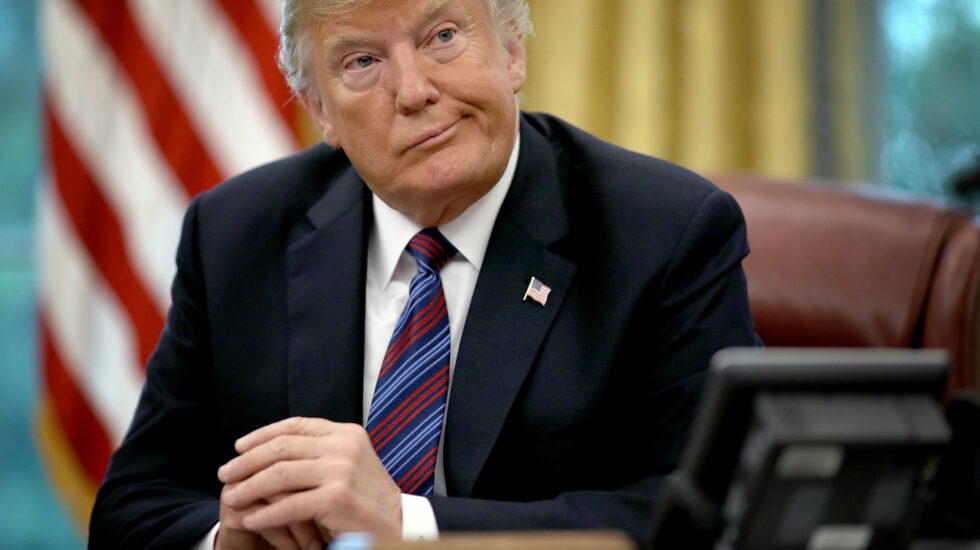The Republican National Committee continues to use manipulative language and confusing opt-out options to raise funds in Donald Trump’s name.
Last week, The New York Times published a jaw-dropping investigation detailing how the Trump campaign and the Republican National Committee tricked supporters into making recurring donations when they intended to make a one-off contribution. Weekly donations, the investigation explains, were the default option and “contributors had to wade through a fine-print disclaimer and manually uncheck a box to opt out.”
Eventually thousands of Trump supporters filed formal complaints about the intentional confusion and over 122 million dollars were refunded.
On Wednesday, it became apparent that the Republican National Committee continues to use the same underhanded techniques.
Writing for The Bulwark, former GOP consultant Tim Miller explains how he received a fundraising text from the NRCC, asking him to fund Trump’s new social media site.
Miller clicked on the associated link and was sent to a landing page that again asked him to contribute to the social media platform. It’s worth mentioning here that the social media company does not exist yet (outside of hype) and it’s unclear if the NRCC would be involved in it at all.
Miller notes that two boxes are prechecked on the landing page. One makes the donation recurring – à la the scheme the New York Times exposed – and another doubles the donation.
The good news: those who double their donation – even unwittingly – are given “Trump Patriot Status.” But those that uncheck the recurring donation box “do NOT stand with Trump.”
Another prechecked box for recurring donations on the NRCC site warns that unchecking it means you’re a “DEFECTOR” who stands with “the Radical Left.”
The original New York Times investigation provides important context:
Marketers have long used ruses like prechecked boxes to steer American consumers into unwanted purchases, like magazine subscriptions. But consumer advocates said deploying the practice on voters in the heat of a presidential campaign — at such volume and with withdrawals every week — had much more serious ramifications.
“It’s unfair, it’s unethical and it’s inappropriate,” said Ira Rheingold, the executive director of the National Association of Consumer Advocates.
Harry Brignull, a user-experience designer in London who coined the term “dark patterns” for manipulative digital marketing practices, said the Trump team’s techniques were a classic of the “deceptive design” genre.
“It should be in textbooks of what you shouldn’t do,” he said.



